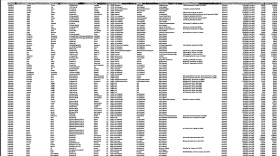Down in the polls, low on cash and deeply unpopular, Rep. Frank Guinta could use all the help he can get defending his 1st District Congressional seat.
But, adding insult to injury, the incumbent has been all but abandoned by the Republican party’s major lifeline for House candidates.
Last week, the Republican National Congressional Committee pulled more than $700,000 in broadcast TV ads that were scheduled for the last two weeks of the campaign.

The ad cancelation is the latest blow for Guinta, whose fundraising has suffered since a Federal Election Commission ruling that he improperly relied on his parents to help pay for earlier campaigns. Guinta has steadfastly denied the FEC’s conclusions, but he agreed to pay back $355,000 in loans and was fined $15,000.
Guinta may be in no position to make up the loss of the NRCC’s support. The group’s spending on the race was already well below that of 2014, when it spent some $4 million to help him win back the seat from Democrat Carol Shea-Porter.
And this year, according to recent FEC filings, Shea-Porter has a considerable cash advantage. As of October 1, she had $400,000 in the bank, compared to $161,000 by Guinta, and is poised to outspend his campaign on TV by more than $100,000 in the final days.
The financial disparity might be why the NRCC’s counterpart, the Democratic Congressional Campaign Committee, as well as another Democratic group, the House Majority PAC, pulled their planned television buys in New Hampshire weeks ago.
The RNCC did not return a call seeking comment, and a spokesman for the DCCC declined to talk about the party’s advertising strategy. But he said recent polls suggest Shea-Porter has a comfortable lead over Guinta.
“Carol Shea-Porter is in a very strong position heading into November,” he said.
University of New Hampshire political science professor Dante Scala said the District 1 race has been a bellwether for both parties and on the “short list of targets” for spending for at least a decade.
But with nearly half of likely voters in 1st District holding an unfavorable opinion of the incumbent, according to UNH’s most recent polling, both sides have turned their attention to more competitive races.
“That both parties have abandoned it this cycle speaks volumes about the viability of the incumbent, as well as the overall political environment,” Scala said.







